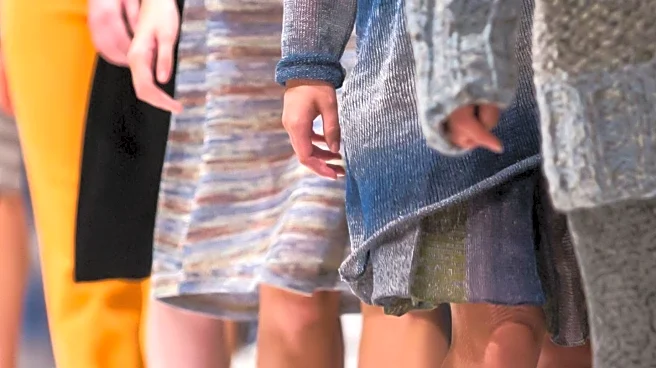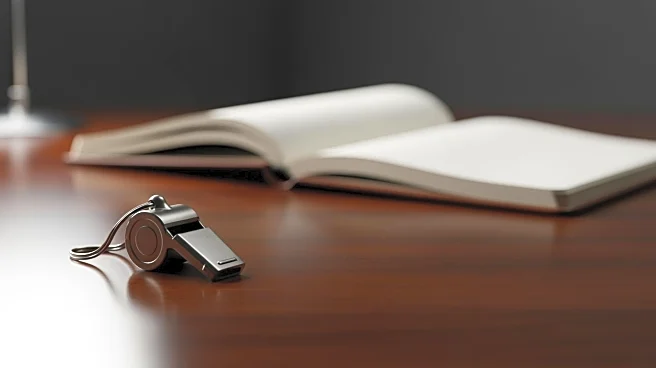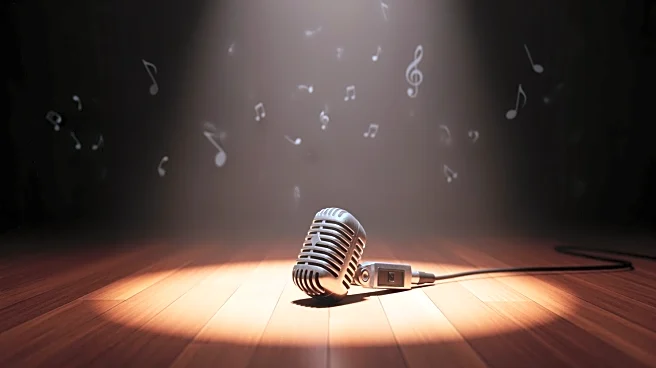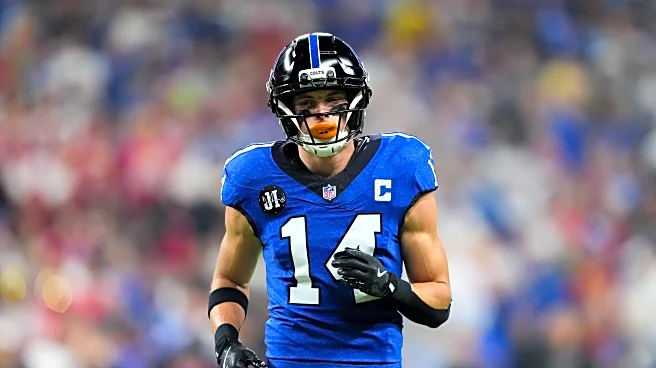What is the story about?
What's Happening?
Rachel Comey, a fashion designer, presented her spring 2026 collection in an intimate setting at Great Jones Alley in New York City. The show was characterized by a relaxed atmosphere, with mismatched chairs and a casual happy hour following the runway event. Comey encouraged her models to do their own hair and makeup, reflecting her design philosophy for self-realized women. The models were instructed to bring their daily beauty favorites, allowing them to express their individuality. Celebrity makeup artist Romy Soleimani was present to offer guidance, emphasizing minimal tweaks and hydration to maintain the models' natural integrity and character.
Why It's Important?
This approach by Rachel Comey highlights a shift in the fashion industry towards authenticity and self-expression. By allowing models to showcase their personal beauty routines, Comey challenges traditional norms of uniformity in fashion shows. This move could influence other designers to adopt similar practices, promoting diversity and individuality. It also reflects broader societal trends valuing personal identity and self-confidence. The presence of a celebrity makeup artist underscores the importance of professional advice while maintaining personal choice, potentially impacting beauty standards and consumer behavior in the industry.
What's Next?
Rachel Comey's decision may inspire other designers to reconsider their approach to beauty in fashion shows. As the industry continues to evolve, there could be increased collaboration between designers and models to create more personalized and authentic presentations. This trend might lead to changes in how beauty products are marketed, focusing on individual needs rather than one-size-fits-all solutions. Stakeholders in the fashion and beauty industries may need to adapt to these shifts, potentially influencing product development and marketing strategies.
Beyond the Headlines
The emphasis on personal beauty choices at Rachel Comey's show raises questions about the ethical implications of beauty standards in fashion. By promoting individuality, the industry could move towards more inclusive practices, challenging stereotypes and encouraging diversity. This development may also impact cultural perceptions of beauty, fostering a more accepting and varied understanding of personal aesthetics. Long-term, this could lead to significant shifts in how beauty is perceived and celebrated across different cultures and communities.
















